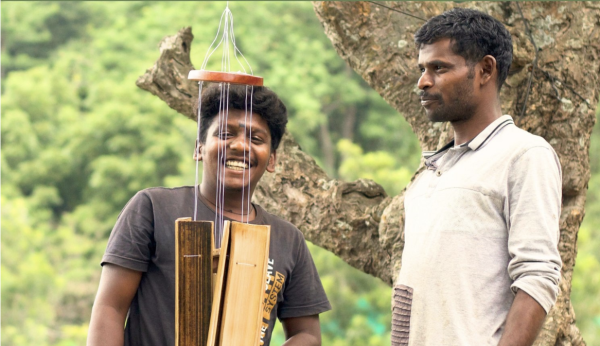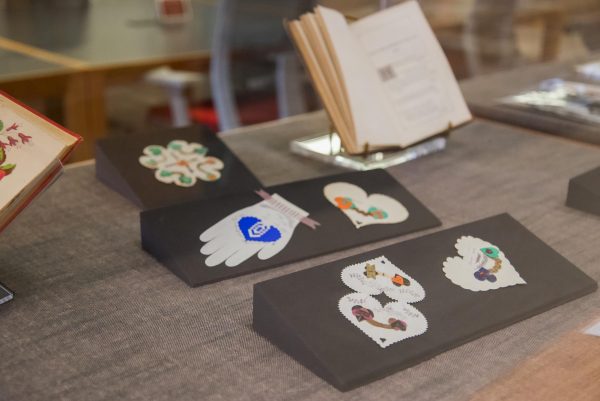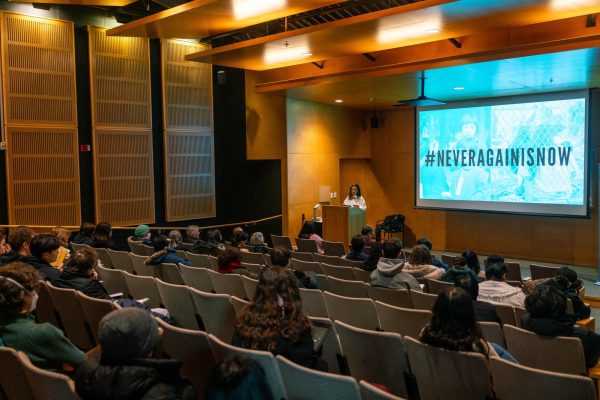Oberlin Shansi Opens 2022 In-Asia Applications
Oberlin Shansi, a cultural exchange program between Oberlin College and universities and non-governmental organizations in Asia, has a rich history in the College. It has connected students with international research opportunities for over 100 years. The association, founded by an Oberlin graduate in 1908, aims to build cross-cultural understanding while providing various experiences for Oberlin graduates. After the COVID-19 pandemic suspended the program’s capacity to send students abroad, vaccinated Oberlin students can now look forward to the reinstated opportunity to apply for in-Asia grants. For current fourth-years, the reintroduction of the international aspect of the program offers inspiration for post-graduation plans.
Shansi offers a variety of different programs for its fellows, including volunteer-based work, teaching English language courses abroad, and designing programs uniquely tailored for each fellow.
Gavin Tritt, executive director of Oberlin Shansi since 2013, said that the program, at its core, is about cultural understanding and exchange.
“The mission from the beginning until now has been about mutual exchange,” Tritt said. “To me, and to many of our alums, Shansi is about trying to build bridges between the Oberlin campus and community and our partners in Asia, and produce enriching, mutually-exchanged experiences for both Oberlin students and recent graduates and our partner institutions and communities in Asia.”
Shansi’s current programs include on-campus program grants and in-Asia grants that aim to financially support undergraduate research in Asia, as well as the Visiting Scholars program and the Shansi Distinguished Lecture series. Most nota- ble, however, is the popular two-year Shansi Fellowship in which Oberlin graduates live and work in an Asian country partnered with the program. The fellowship program is designed not only to enhance the student’s academic pursuits, career opportunities, and life experiences, but also to benefit the partners involved.
Visiting Assistant Professor of Creative Writing Elizabeth Lindsey Rogers, OC ’07, completed a postgraduate fellowship in China, an experience that informed a significant portion of their first book of poetry, Chord Box.
“A two-year fellowship (unlike some fellowships, such as Fulbright, which usually last only a year) is enough time to get rooted in a place and build a community,” Rogers wrote in a message to the Review. “China is a very communal place, and I had a wonderful circle of people in Taigu, the university town where I was living. There was no larger expatriate culture in Taigu at that time, so my cultural experience was pretty immersive. My co-fellows and I were integrated into our larger community, living alongside the people we were working with and teaching. I made close Chinese friends, and the closeness and honesty in those friendships made real cultural exchange possible.”
For Rogers, the breadth of interpersonal growth they underwent during this time would’ve been ultimately inconceivable to them prior to their experience with Shansi.
“By the time I left China — having lived and been so deeply immersed there and also having traveled to a number of other countries in Asia during my fellowship — I also felt that my worldview had been forever altered, widened in ways I couldn’t have even imagined before,” Rogers wrote.
Former Shansi fellow Sydney Allen, OC ’19, now living and working in Bali, Indonesia, explained why the program is so important to her.
“Shansi really works with the partner sites to make sure everyone gets the most out of the relationship, makes sure needs are being met, and that we are doing something important and tangible in the community,” Allen said. “It was a very dualistic relationship.”
Shansi is its own program, uniquely positioned as a separate entity from Oberlin College, and yet it is still intertwined with the College in terms of its mission and goals.
“We have a separate tax status with the IRS, we have our own Board of Trustees, but functionally and mission-wise we are closely integrated with the College,” Tritt said. “Shansi supports different initiatives on campus, like the Asian American Pacific Islander Experience Grant program, student groups, and departments.”
Shansi fellowships are not limited to only students with an Asian background, or even students who have a major or concentration in Asian studies. In fact, the program welcomes students of all majors and areas of study to participate in the program.
“Shansi has always been about the entire Oberlin community,” Tritt said. “We try to be really explicit and clear that the opportunities we provide are for any Oberlin College or Conservatory student. We’ve had students from all sorts of majors from all sorts of backgrounds.”
“It’s important, especially now, to be able to work in an international workplace with various cultures,” Allen said. “Those skills of learning how to navigate the awkward culture or language differences and being able to adapt to a longstanding unknown can be incredible and useful for whatever career path you choose.”
Allen now works at the international news agency Global Voices and has become proficient in Indonesia’s official language, Bahasa.
Shansi is currently accepting applications from graduating students for the upcoming summer.










